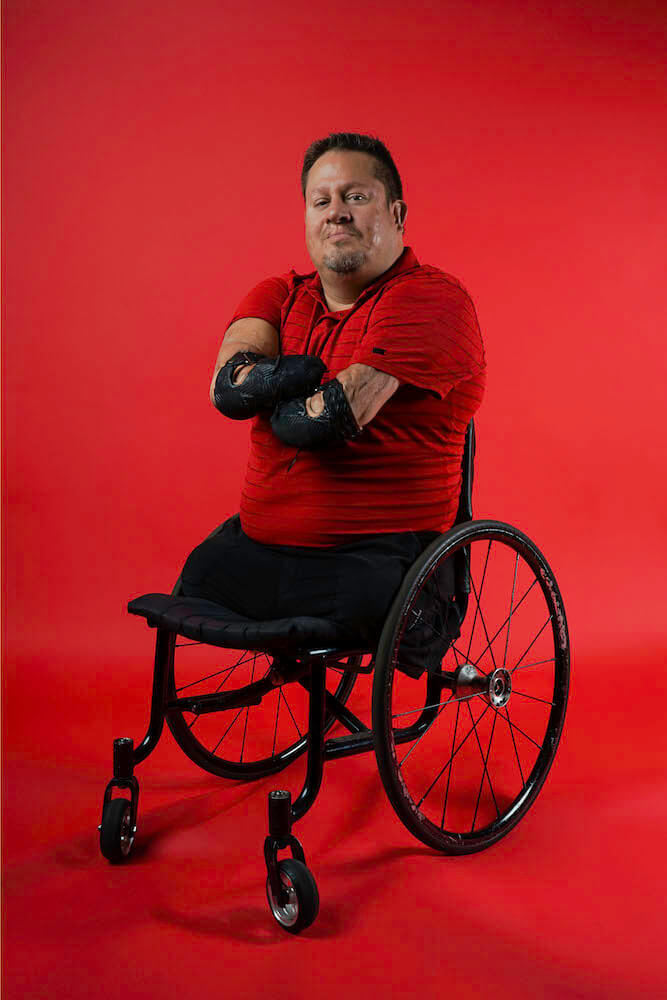About Bob
53-year-old Bob Lujano is a very skilled athlete, having competed in the Paralympics in Greece for wheelchair rugby. After a heart attack five years ago, he reevaluated his physical activity and nutrition, staying active in wheelchair rugby, tennis, basketball and more.
JIn addition to his athletic feats, Bob has been employed by the Lakeshore Foundation for 24 years and is currently an Inclusion Specialist for the National Center on Health, Physical Activity and Disability (NCHPAD). He assists with various programs and has helped thousands of people with disabilities get their questions answered.
Bob married his wife, Wendy, ten years ago, becoming a father and grandfather, and credits his Catholic faith with helping him maintain a positive attitude. Bob prides himself on his independence and is very approachable when discussing disabilities with strangers – especially children – because, as he says, “asking questions is how people learn, and at the end of the day, disability is part of the human condition.”
Bob Lujano on Ableism
[00:00] I’m Bob Lujano and I fight for inclusion for people with disabilities. I very much look forward to speaking with kids and you know, I've had my disability for over 40 years. Early on, when parents were kind of keeping kids away and “Oh, don't look. Don't point. Don't stare.” Now I just go up to the kid and just say “Hey,” you know, “my name's Bob.” you know, “is there something you want to ask me? Don’t be afraid to ask.”
[00:21] Which is fine, because when it's all said and done, you know, that might have been the first time they’ve interacted with someone with a disability and they got all their questions answered. And the parting message I always leave with them is, you know, don't be afraid to ask questions. That’s how you learn in life. That's how you gain knowledge.
[00:36] At the end of the day, disability is part of the human condition. Eventually, you'll either know someone with a disability or yourself will have a disability. We can really address inclusion in our society in all aspects from policy to built environment to technology. Once that becomes a staple within our society, then it'd be everyone wanting to make that impact and that change.

